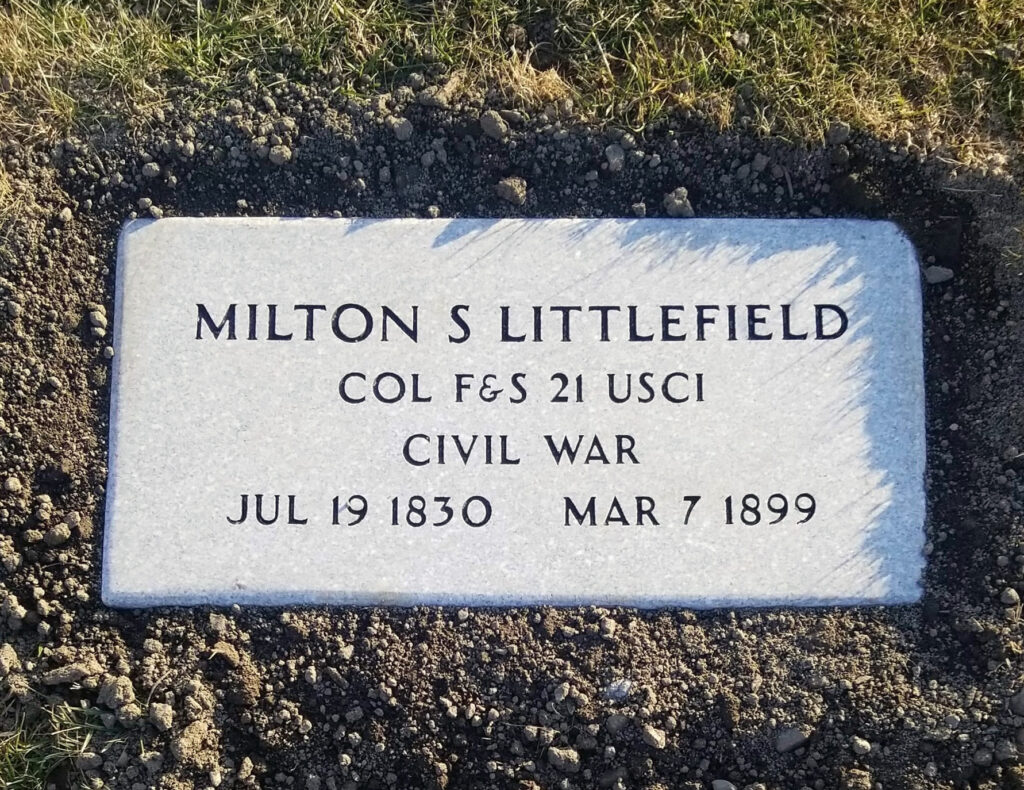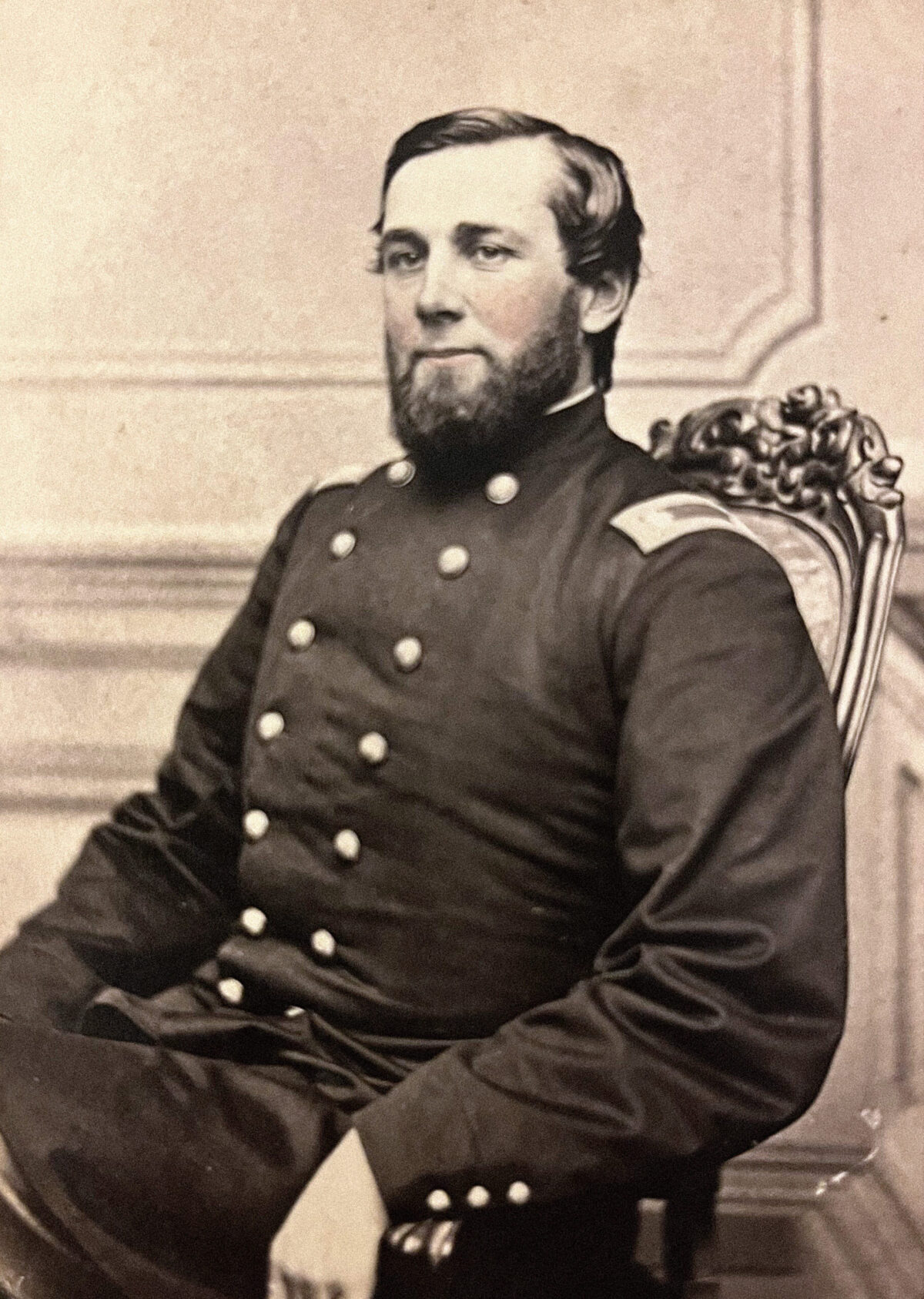It was a fear Milton Smith Littlefield Jr. simply couldn’t shake whenever speaking before an audience. Though well-respected, the Presbyterian minister and editor of hymn books agonized about being recognized as the son of Civil War General Milton Smith Littlefield. The younger Littlefield did what he could to squash this controversial legacy, even tearing out, upon his father’s death, the pages of the general’s scrapbook to conceal his crimes from curious readers.
Was General Littlefield really worthy of such shame, however? He had been a rising star in the U.S. Army—a friend of Abraham Lincoln and, during the war, a distinguished commander of African American troops.
The elder Littlefield befriended Lincoln while working as a lawyer and newspaper reporter, and enthusiastically lent his support during the 1860 presidential election. His brother, John H. Littlefield, worked as a clerk in Lincoln’s Springfield, Ill., law office and was later appointed a U.S. Treasury Department clerk.
Elected a captain in the 14th Illinois Infantry, Milton Littlefield Sr. led a company at Shiloh, drawing praise from one of his sergeants for standing “erect in front of his men, during the whole engagement” and escaping “injury, except having about three inches torn from the left shoulder of his coat, by an [enemy] ball.”
GET HISTORY’S GREATEST TALES—RIGHT IN YOUR INBOX
Subscribe to our HistoryNet Now! newsletter for the best of the past, delivered every Monday and Thursday.
In November 1862, Littlefield was aboard the steamer Eugene when it struck a sunken ship and sank in the Mississippi River, about 12 miles above Fort Pillow. While trying to keep passengers calm, the future general was knocked overboard and drifted downriver until rescued by Union soldiers at the fort.
Four months later, Littlefield was sent to South Carolina to organize and lead African American troops. As colonel of the 21st U.S. Colored Infantry, he was attached to Brig. Gen. Quincy A. Gillmore’s staff and, during the famed assault on Fort Wagner in July, was among those noted for “doing all in their power to sustain the courage of the troops and urge on reinforcements” while under “constant” fire. Littlefield assumed command of the 54th Massachusetts, replacing slain Colonel Robert Gould Shaw, and in November 1864 was brevetted a brigadier general.
Erasmus W. Jones, 21st USCI chaplain, would write that Littlefield’s “unflinching perseverance, united with that perfect moral integrity that have so far elevated him, will soon raise him to higher dignities and honors.” The general’s postwar endeavors erased any chance of that, however.
In 1867, he and George W. Swepson, president of the Western North Carolina Railroad, were involved in a multi-million-dollar embezzlement scheme. Having fled to Florida, he evaded prosecution despite multiple attempts to extradite him.

After relocating to New York in his later years, he was arrested for other offenses, including grand larceny and misappropriation of a mortgage bond. He died in Vadhalla, N.Y., on March 6, 1899—his burial service lightly attended, no surprise.
Perhaps Milton Littlefield Jr. had his father in mind with this entry in his Hymns of the Christian Life: “Those who never knew Thee, Those who’ve wandered far, Guide them by the brightness Of Thy guiding star….To that heavenly home, Where no sin nor sorrow Evermore shall come.”






